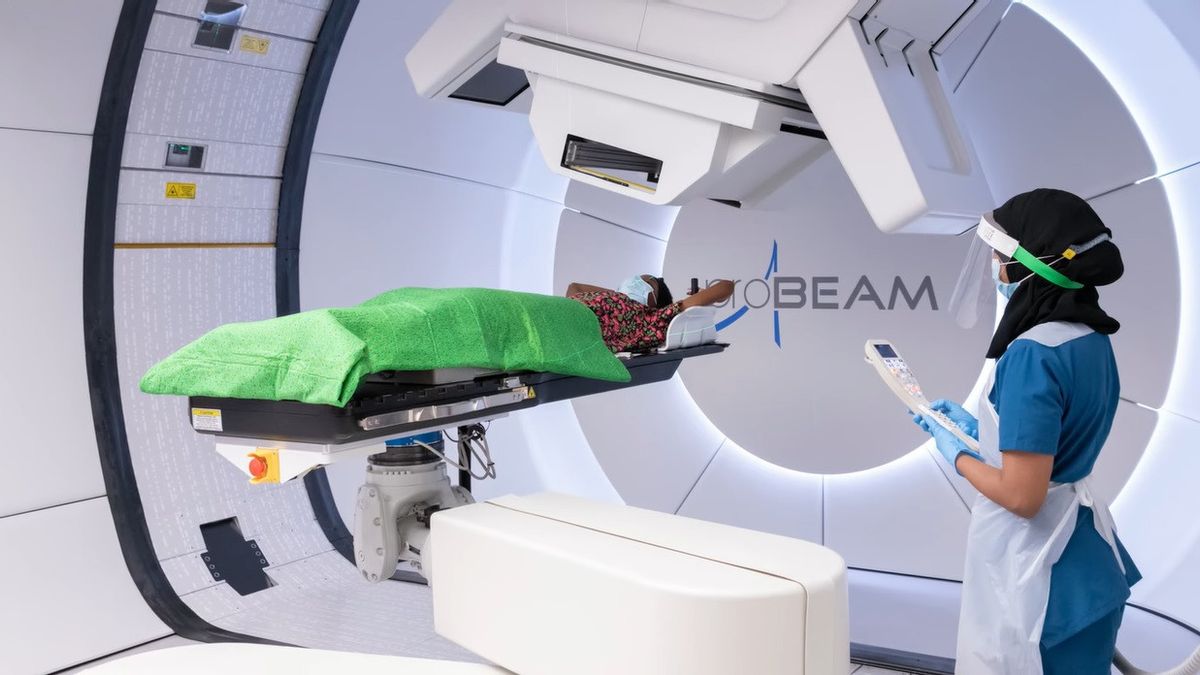JAKARTA - The UK launches the first trial of proton beam therapy for selected patients with breast cancer.
Researchers from the University of Cambridge will assess the benefits of therapy, for patients who are at risk of experiencing heart problems.
The trial will compare the therapy – which can target radiotherapy beams more precisely – with standard radiotherapy for patients who are at greater risk of developing long-term heart problems after treatment.
This will help to determine whether proton beam therapy can help deliver an adequate radiotherapy dose to the breast tissue, while minimizing the off-target radiation delivered to the heart.
The trial is planned to be attended by around 192 people at 22 locations in England.
Patients will be treated with proton beam therapy at The Christie NHS Foundation Trust in Manchester or University College London Hospitals NHS Foundation Trust.
"Even though only a small group of people are exposed to a higher risk of heart problems later in life, it can still be a serious problem," said Prof. Charlotte Coles from the University of Cambridge and consultant oncologist at Addenbrooke's Hospital who will lead the trial, reported The National News, January 9
"The vast majority of patients treated with radiotherapy have a healthy life span for decades to come. We need to do everything we can to avoid possible future heart problems associated with treatment," she continued.

"Standard breast radiotherapy is completely effective for most people with very few side effects, but there is a small group of patients for whom proton beam therapy may be a better option," she said.
In the UK, more than 30.000 people with breast cancer receive radiotherapy after surgery as part of their treatment each year.
Standard breast cancer radiotherapy uses high-energy X-rays to kill cancer cells. In addition to lowering the risk of cancer coming back, radiotherapy can increase survival rates.
However, the risk of heart problems later in life may be higher in some people who require radiotherapy to breast tissue and lymph nodes close to the heart.
People who are estimated to have at least two percent or more of the potential lifetime risk of heart problems from radiotherapy will be invited to take part in the trial. About 500 out of every 30.000 people who receive radiotherapy for breast cancer fall into this category.
Patients entering the trial will receive standard radiotherapy or proton beam therapy.
The trial will measure the radiation dose delivered to the heart as an early predictor of possible heart problems, avoiding the need for long follow-up tests for years before results are available.
People in the trial will also record their experiences using a questionnaire, so researchers can assess side effects including skin reactions, breast pain and swelling, and other symptoms.
VOIR éGALEMENT:
"The Parable trial will measure the average dose of radiotherapy delivered to the heart, to predict long-term heart damage," said Prof Judith Bliss, director of the UK-funded Cancer Research Statistical and Clinical Trials Unit at The Institute of Cancer Research, London.
"Using these early predictors will allow us to uncover the potential benefits of using proton beam therapy, for long-term heart health over years, not decades."
The trial was led by researchers at the University of Cambridge, Institute of Cancer Research, London and the Royal Marsden NHS Foundation Trust, managed by the Cancer Research UK-funded Clinical Trials and Statistics Unit at The Institute of Cancer Research.
The English, Chinese, Japanese, Arabic, and French versions are automatically generated by the AI. So there may still be inaccuracies in translating, please always see Indonesian as our main language. (system supported by DigitalSiber.id)















